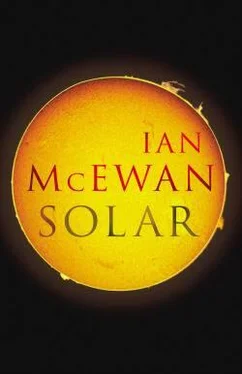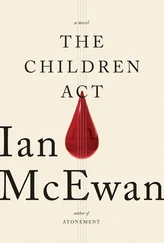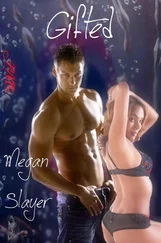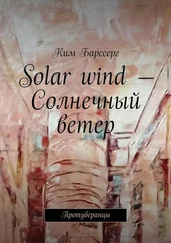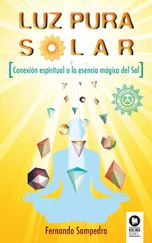He took a suit – it was probably his anyway – from peg seventeen. It turned out to be at least two sizes too big, but once it was on he was not inclined to remove it. The boots, however, were a size too small. Among the smaller items in the basket only a glove liner was missing, and he made it up by taking a spare liner from number twenty-three, and promised himself to return it. The crack in his goggles no longer troubled him. He stepped out on deck to ironic applause from the group waiting below on the ice and, wanting to get in the spirit of group life, he made a bow. Even in his hurry, he had time to take in the scene from the top of the shallow ramp of the gangplank. There were many figures scattered on the ice around the ship. The helmets transformed the proportions of their heads, the snowmobile suits swelled their rumps, so that from a distance they resembled infants in a nursery playground. The choreographer and three friends were marking out her geometric dance; two figures were building what looked like a snowman or a statue; a lone person, probably Pickett, was rigging a microphone between two cones of ice; a person with a chainsaw was helping another, surely Jesus, load four ice blocks onto a sledge; someone was kneeling to polish a lens of ice a metre across. Another figure was going about in circles with a red flag and a whistle for the benefit of a movie camera on a tripod.
He had amazed himself by volunteering so soon for another snowmobile ride. Claustrophobia had driven him out, and the tawny light across the fjord as seen from the mess windows, and the fact that it was not permitted to go anywhere without a guide and his gun. He sat astride the last machine and the group set off in single file across the ice in an easterly direction, deeper into the fjord. It should have been fun, to be skimming down a wide corridor of ice and snow, with mountains rising sheer on both sides. But once again, the wind cut through every layer, the cracked goggles fogged up and froze within minutes and Beard could make out no more than a greyish blob of the machine in front. He was directly in the wash of six exhausts. For ten kilometres Jan kept up a wild speed. Where the winds had stripped the snow away, the surface of the fjord was like ridged iron and the snowmobiles rattled and bucked.
Twenty minutes later they were standing in sudden silence a hundred metres from the glacier’s terminus, a broken blue wall that stretched for fifteen kilometres across the valley. The impression was of a ruined city, grubby and dissolute, with rubble, broken towers and giant fissures. At minus twenty-eight, it was too cold today, Jan explained, for displays of ice shearing away in the cause of polar warming. They passed an hour taking photographs and walking up and down. Then someone saw a print in the snow. They huddled round it, and stepped back to allow their guide, whose rifle was over his shoulder, to display his expertise. A polar bear’s print, of course, and very new. The snow was thin where they stood, and it was not easy to find another impression. Jan used his binoculars to scan the horizon.
‘Ah,’ he said quietly. ‘I think we leave now.’
He pointed and at first they saw nothing. But when it moved, it was clear enough. At a distance of a mile or so, a bear was ambling towards them.
‘He’s hungry,’ Jan said forgivingly. ‘Time for skidoos.’
Even with the prospect of being eaten alive, dignity prevailed and they only half ran to the machines. As he reached his, Beard knew what to expect. Everything about this trip had conspired to reduce him. Why would his luck change now? He pushed the button. Nothing. Fine. So let his sinews be stripped from his bones. He tried again, then again. Around him, clouds of blue smoke, and high-pitched roars, the proper expression at last of full-throated panic. Already, half the party was shooting away in the direction of the ship. It was every-man-for-himself. Beard wasted no energy cursing. He pulled out the choke lever, though he knew it was a mistake, for the engine was still warm. He tried again. And again, nothing. He smelled petrol. He had flooded the engine and he deserved to die. Now all the others had gone, along with the guide, whose dereliction of duty Beard resolved to report to Pickett, or the King of Norway. His agitation was steaming up his goggles, and, as usual, the steam froze. Pointless then, to look back, but he did it all the same, and saw frozen steam fringed with a glimpse of the fjord’s ice. It was reasonable to assume the bear was still coming, but he had clearly underestimated its speed over the ground, because at that moment his shoulder was struck a heavy blow.
Rather than turn and have his face ripped away, he hunched his shoulders in expectation of the worst. His last thought – that in his carelessly unchanged will he had left everything to Patrice for Tarpin’s use – would have been a dismal one, but what he heard was the guide’s voice.
‘Let me do it.’
The Nobel laureate had been pressing the headlight switch. The machine came to life at first touch.
‘Go,’ Jan said. ‘I’m behind you.’
Despite the danger he was in, Beard glanced back again, hoping to catch sight, for anecdote’s sake, of the animal he was about to outpace. In the narrow perimeter of semi-clarity that surrounded the goggle’s frozen fog patch there was movement, but it may have been the guide’s hand or a corner of his own balaclava. In the account he would give for the rest of his life, the one that became his true memory, a polar bear with open jaws was twenty metres distant and running at him when his snowmobile started forward, not because, or not only because, he was a liar, but because he instinctively knew it was wrong to dishonour a good story.
Racing away across the rackety ice, he gave out a whoop of joy that was lost to the icy hurricane in his face. How liberating to discover in the modern age that he, a city-dweller, an indoors man who lived by the keyboard and screen, could be tracked and ravaged and be an entire meal, a source of nourishment to others.
Perhaps that was the best moment of his week. They were back at their base within minutes, it seemed. Already, at one forty-five, there was a deeper chill in the air, and orange evening light illuminated the few artists who had not yet retreated into the ship. His groin was so tender that he waited until the others had gone inside, then he walked backwards up the gangplank. It hurt less that way. He paused in the entrance of the boot room, waiting for his eyes to adjust to the poor light, and soon it was clear enough – someone had hung all his stuff at Beard’s station. In a constructive spirit, he removed the lot, boots and all, to a vacant spot in a corner. When he took off his woollen balaclava, it slipped to the floor with a clunk and seemed to stare up at him in open-mouthed disbelief. What was he doing here? He put his gear away, then he went to the mess room, said a round of hellos to the half-dozen people there, and took a hot drink to his cabin and lay on the bunk.
It was an accident of cartography that placed the South Pole under the North, but he could not dispel the impression that he was near the top of the world and that everybody else, Patrice included, was below him. He had an overview then, and they became a feature of his week, these afternoons in the Arctic dusk, when he reminded himself over the cocoa that his life was about to empty out and that he must begin again, take himself in hand, lose weight, get fit, live in a simple, organised style. And get serious at last about work, though he had no idea what work he could do that was not detached from or eased by his peculiar fame. Must he give forever the same lecture series about his one small contribution, sit on committees, be a Presence? He had no answers, but the musing was comforting and often he fell asleep in the darkness of three o’clock and woke hungry, with renewed appetite for the vin de pays.
Читать дальше
